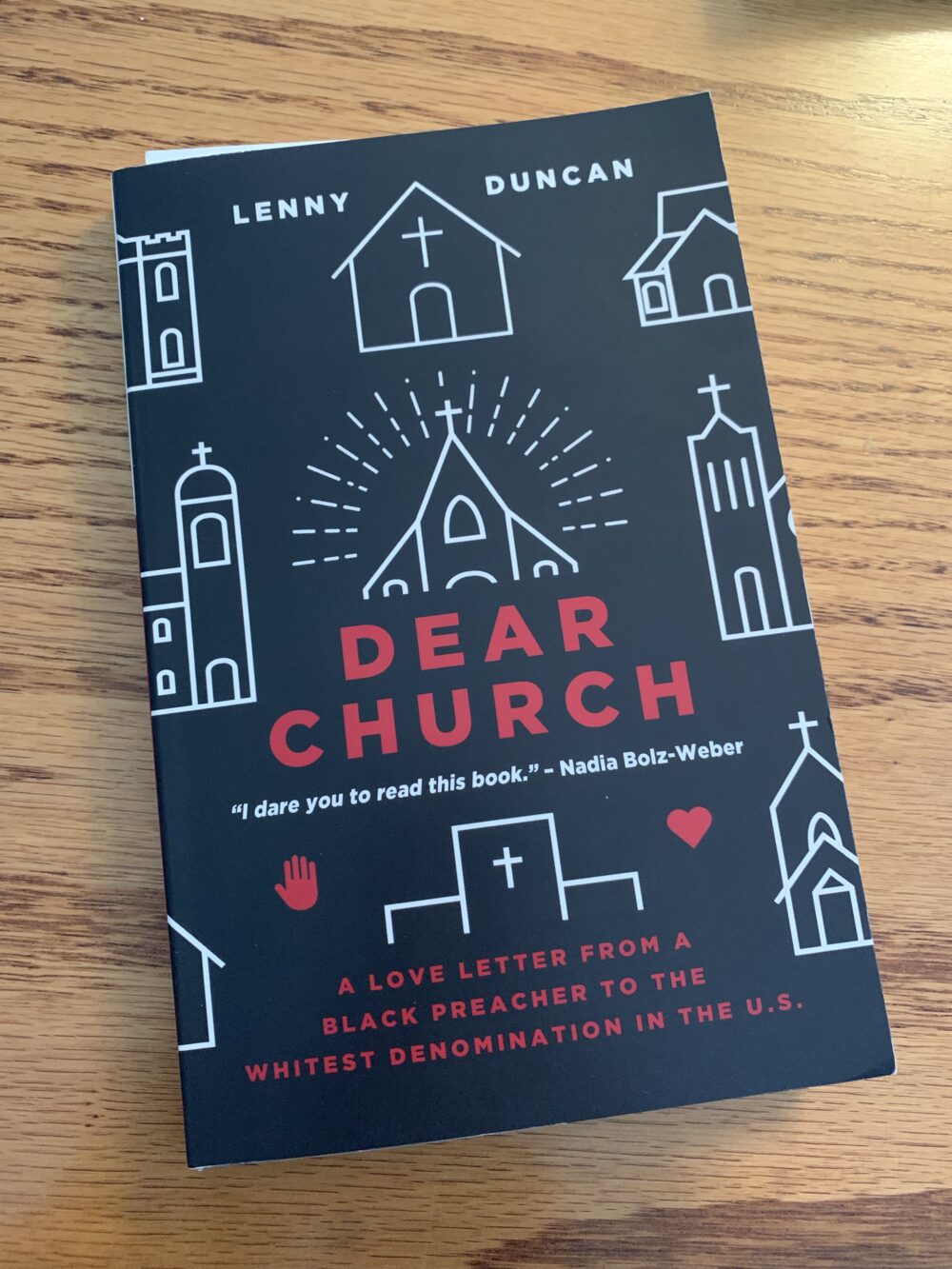Statement on Racial Justice
June 10, 2020
We say his name: George Floyd.
Here at Holy Trinity, we grieve his death, we condemn the sins of racism and white supremacy in all forms, and we commit to seek racial justice in this community.
In Genesis, we hear that we are made in the image of God. Jesus came to reiterate that God’s love extended from the Jews to the Gentiles. All people are infinitely loved by the very God who created them. We believe we are wonderfully different.
But in the aftermath of George Floyd’s murder, voices continue to declare that systemic oppression of people of color still exists. While it is tempting to blame someone else, we believe that we all need to recognize our own faults for the problem, as well as our own responsibilities for the reconciling work that needs to be done.
We confess our sin, that we have let racial biases take root in our country, in our community, in our church, and in ourselves. We apologize to people of African descent for what we have done and what we have failed to do. It is time to commit to the difficult work of naming and repenting from the ways we have been silent in the face of racial injustice. Black lives matter.
As a denomination, the ELCA stands in solidarity with the victims of racial injustice. Bishop Elizabeth Eaton issued numerous pastoral responses denouncing white supremacy and addressing George Floyd’s murder. In 1993, the ELCA created a social statement titled “Freed in Christ: Race, Ethnicity, and Culture,” which confesses the church’s historic enslaving patterns of injustice, but commits to working toward genuine cultural diversity. At the 2019 Churchwide Assembly, the ELCA reaffirmed this commitment to combat racism and white supremacy. This resolution states,
“As persons called to love one another as God has loved us, we therefore proclaim our commitment to speak with one voice against racism and white supremacy. We stand with those who are targets of racist ideologies and actions.”
On Friday, May 29, the conference of bishops reaffirmed this commitment. Our local bishop, Rev. Ann Svennungsen, issued a statement that gives guidance for our area ELCA congregations. Calling them to work together, she states that when it comes to racial inequalities, “Neutrality isn’t really an option.”
So, Holy Trinity, what can we do?
When issues arise in our world, we want to be a church that responds. In the aftermath of the riots in the Twin Cities, there is much long-term work to repair the community, but right now people have an immediate need for food and supplies. Two ELCA congregations are trusted drop-off sites and community leaders in this reparation work: Holy Trinity Lutheran Church, and Calvary Lutheran Church. Our Mission/Outreach team of Holy Trinity is giving each of these congregations $1,500, for a total of $3,000, to support their pop-up food shelves.
What else can we do? We can commit to educating ourselves. We purchased Lenny Duncan’s, Dear Church for everyone on staff  and council. Published in 2019, Duncan was formerly incarcerated and homeless. He is now a black pastor in the ELCA, unfortunately the whitest denomination in the United States. Duncan refers to this book as a love letter, and he offers a bold new vision for the ELCA going forward that sees church renewal through the lens of racial equity and justice. As leaders of the congregation, we commit to reading this book together and having conversations that help us address racism within our church and within ourselves, and work toward a more inclusive congregation.
and council. Published in 2019, Duncan was formerly incarcerated and homeless. He is now a black pastor in the ELCA, unfortunately the whitest denomination in the United States. Duncan refers to this book as a love letter, and he offers a bold new vision for the ELCA going forward that sees church renewal through the lens of racial equity and justice. As leaders of the congregation, we commit to reading this book together and having conversations that help us address racism within our church and within ourselves, and work toward a more inclusive congregation.
 and council. Published in 2019, Duncan was formerly incarcerated and homeless. He is now a black pastor in the ELCA, unfortunately the whitest denomination in the United States. Duncan refers to this book as a love letter, and he offers a bold new vision for the ELCA going forward that sees church renewal through the lens of racial equity and justice. As leaders of the congregation, we commit to reading this book together and having conversations that help us address racism within our church and within ourselves, and work toward a more inclusive congregation.
and council. Published in 2019, Duncan was formerly incarcerated and homeless. He is now a black pastor in the ELCA, unfortunately the whitest denomination in the United States. Duncan refers to this book as a love letter, and he offers a bold new vision for the ELCA going forward that sees church renewal through the lens of racial equity and justice. As leaders of the congregation, we commit to reading this book together and having conversations that help us address racism within our church and within ourselves, and work toward a more inclusive congregation.What else can we do? Brenda Blackhawk, Congregational Organizer for Racial Justice with the Minneapolis Area Synod, was hired in 2019 to help congregations have conversations about race and how they can take next steps towards living into their Christian calling. In partnership with Ms. Blackhawk, we will begin a Racial Justice task force here at Holy Trinity. If you feel called to be on this particular team, please email ben@holytrinityonline.org.
In addition, may we all commit to prayer, education, and continued soul-searching repentance. As persons of faith, we commit to sharing God’s love for all people. We believe the diversity of people and thought is fundamental for Christian unity. Our common prayer is that our community comes together to listen, to learn, to develop new relationships and to work to restore justice and righteousness, for all of God’s people.
Pastors Alicia and Ben Hilding


